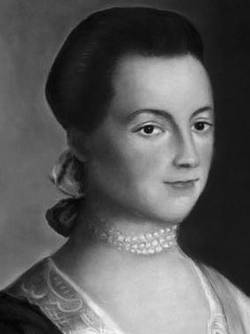Monmouth’s Model United Nations delegation once again soared, this time as the team participated in the world’s largest Model U.N. simulation. The delegation attended the National Model United Nations (NMUN) conference in New York City from March 24-28 under the leadership of Head Delegates Andrew Bell and Matthew-Donald Sangster and advisor Dr. Thomas Lamatsch. Representing the Kingdom of Belgium, the team received an “Honorable Mention” for their performance at the conference.
In addition to the Head Delegates, Monmouth was represented by Rezwan Ahmed, Liz Anderson, Geoffrey Cloepfil, Jacquie Corsentino, Rafael Gonzalez, Kyle Hasslinger, Alan Jean, Chris Lojek, Chris Miller, Alex Nanchanatt, Adit Patel, Myles Peterson, Emily Smith, and Saliha Younas.
Delegates represented Belgium on ten committees. Senior Head delegate Andrew Bell was not part of a committee to support all teams which was particularly important given that the majority of the delegates had never attended a Model U.N. Simulation before.
Bell said commenting on his experience, “The delegates impressed me tremendously. It is hard to believe that so many first timers could learn as quickly as this group did, and that their efforts had resulted in the reception of honorable mention for MU.”
In the General Assembly First Committee, second time Model U.N. participant.
Myles Peterson debated solutions to the illicit trade of small arms and light weapons. He helped to sponsor two resolutions within the European Union (EU) working group, one of which the committee passed.
First time participants Emily Smith and Alan Jean worked with General Assembly Second Committee to propose resolutions on climate change and sustainable development. The delegates sponsored one paper, which was passed by the committee to become a resolution.
With the General Assembly Third Committee, first timers Rafael Gonzalez and Kyle Hasslinger worked to strengthen the regulation of international drug trafficking. The delegates sponsored a paper with fellow EU nations Luxembourg and the Netherlands to address the supply issue in relation to drug trafficking. They also sponsored a second paper dealing with information sharing and coalitions to aid border control of drug trade. Both papers were passed as resolutions by GA3.
Gonzalez looked highly upon the experience at the conference, noting the impact for his future.
He said, “I gained a lot of experience I will certainly take with me to law school,” which he will attend post-graduation.
Representing Belgium on General Assembly Fourth Committee were first-time Model UN participants, Chris Lojek and Rezwan Ahmed, who discussed the committee topic: Israeli Settlements in the Occupied Palestinian Territory and Assistance to Palestinian Refugees.
Lojek spoke about a paper Belgium sponsored. “The idea was to bring both Palestine and Israel to the table with a third party and deal with the land disputes, and in the process end the violence.” In the end, unfriendly amendments caused the committee to vote against the paper. However, the delegates worked to sponsor another paper on education, which passed with the committee becoming a resolution.
Liz Anderson took part in the Special Committee on Peacekeeping Operations (C-34), a committee that writes reports rather than resolutions.
Anderson sponsored three segments on the following topics to be entered into a final report: women peacekeepers, children and peacekeeping, and proper training for non-violent civilian peacekeepers.
First time delegate, Anderson enjoyed the experience so much she already wishes she was back at NMUN. She said of the conference, “[it] was the most amazing experience of college thus far.”
She continued on to note the benefits she took away, “Not only did I get a hands-on lesson on how the UN works together as a united body, but I also learned numerous leadership, public speaking, and team building skills.”
In the Commission on the Status of Women (CSW), Model U.N. veteran Saliha Younas and rookie Jacquie Corsentino debated solutions to eliminating preventable maternal mortality rates through the empowerment of women. The team sponsored two working papers, one that focused on contraceptives and family planning, and another that focused on solutions for MMR such as midwifery schools and social media campaigns.
Kyle Nanchanatt worked with United Nations Conference on Trade and Development (UNCTAD), another report writing committee. He looked at ways of furthering development gains through harnessing resources and cooperation.
On the Human Rights Council (HRC), Chris Miller and Adit Patel discussed deterring discrimination and human rights violations. At one point during session, Miller gave a passionate speech about human rights that earned him applause from fellow delegates – an unusual occurrence that breaks decorum regulations. Delegates ignored these rules because they were so moved by Miller’s presentation.
Finally, third-time participant Sangster represented Belgium in the International Atomic Energy Agency (IAEA). By no surprise, the committee discussed the nuclear situation in North Korea. Belgium sponsored two papers, both which passed on to become resolutions.
Since it was his third-time around, Sangster noted that this year stood out to him because of “the significance and relevance of the issues discussed. We focused on pressing issues that impact the entire global community rather than isolated issues.”
NMUN-New York brings together over 5,000 students annually in mock United Nations sessions.
The National Collegiate Conference Association (NCCA) sponsors the National Model United Nations program, which is the largest college-level MUN program. The conference is aimed at providing hands-on experience to confront many topics, developing an appreciation of different viewpoints and cultural perspectives.



